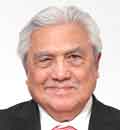First of 2 parts
As in most wars, the actual start of the conflict is often ambiguous. It is more a series of events, generating a spark that leads inevitably toward a conflagration. A case in point is World War 1. In June 28, 1914, Archduke Franz Ferdinand, heir to the Austria-Hungarian Empire, was assassinated by a Serbian nationalist in Sarajevo, the capital of Bosnia and Herzegovina, a country yearning to free itself from an empire. For a month, Austria-Hungary waited for Kaiser Wilhelm 2nd’s word that Germany would be on her side before declaring war — Serbia being allied to Russia, France and Great Britain. Upon Germany’s assurance, an ultimatum was issued with conditions so harsh that war became unavoidable. On August 4, Germany invaded France through neutral Belgium. Thus, the “Guns of August” began the war.
Continue reading with one of these options:
Ad-free access
P 80 per month
(billed annually at P 960)
- Unlimited ad-free access to website articles
- Limited offer: Subscribe today and get digital edition access for free (accessible with up to 3 devices)


